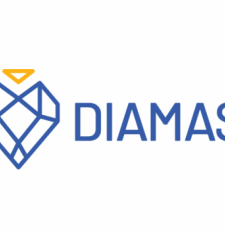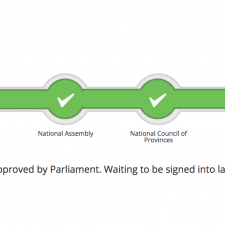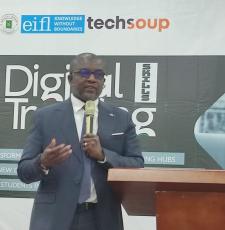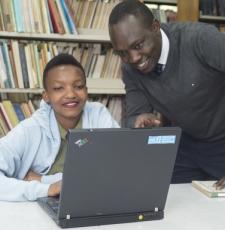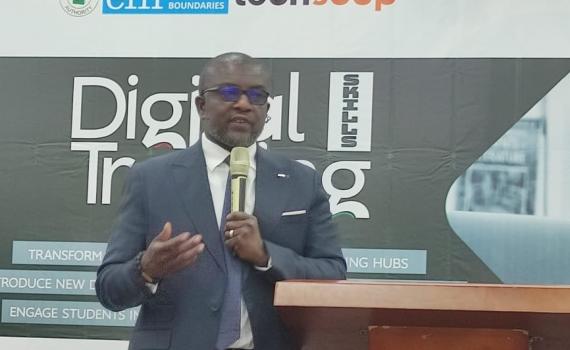
Representatives of the government agencies responsible for education and roll-out of telecommunications infrastructure, library leaders and librarians, and school principals and teachers participated in the stakeholders’ forum held in Accra, Ghana, to formally launch the Digital Learning @ Ghana Public Libraries project.
The launch, on 11 March 2024, was organized by the EIFL Public Library Innovation Programme (EIFL-PLIP) and the Ghana Library Authority (GhLA). EIFL-PLIP, the GhLA and the nonprofit organization, TechSoup, are partners in the Digital Learning @ Ghana Public Libraries project, which aims to increase educational opportunities for school students by building the capacity of libraries to train students in digital and information literacy skills. The project will also introduce teachers and students to free and open online educational resources.
In his opening address, Hayford Siaw, Executive Director of the GhLA, discussed how the introduction of digital technology in libraries in Ghana was leading to the development of new ICT-based services, including ICT training, providing remote access to online courses and the Ghana Library App, which provides library members with access to e-books. The partnership with EIFL would support libraries in their role of connecting people to knowledge by building librarians’ skills to provide practical ICT training in schools, and helping children adapt to the changing world of technology.
Dr Kwabena Tandoh, Deputy Director-General at the Ghana Education Service, acknowledged the challenges that schools and students face with respect to access to digital devices and the internet, and learning digital skills, especially in more remote rural locations. The Education Service was trying to remedy this, and was currently distributing digital devices to teachers across the country, and to teachers and students in senior high schools.
“Once teachers and learners have the devices, they need digital skills,” he said. “I hope that this project will open new learning opportunities in the digital world for our students,” he said.
He was glad to see the project programme would pay attention to digital literacy to help children navigate the internet, and online safety skills to alert learners to online threats they might encounter while discovering new learning opportunities. The introduction of free and open online resources would also be extremely helpful, he said.
Needs assessment research results
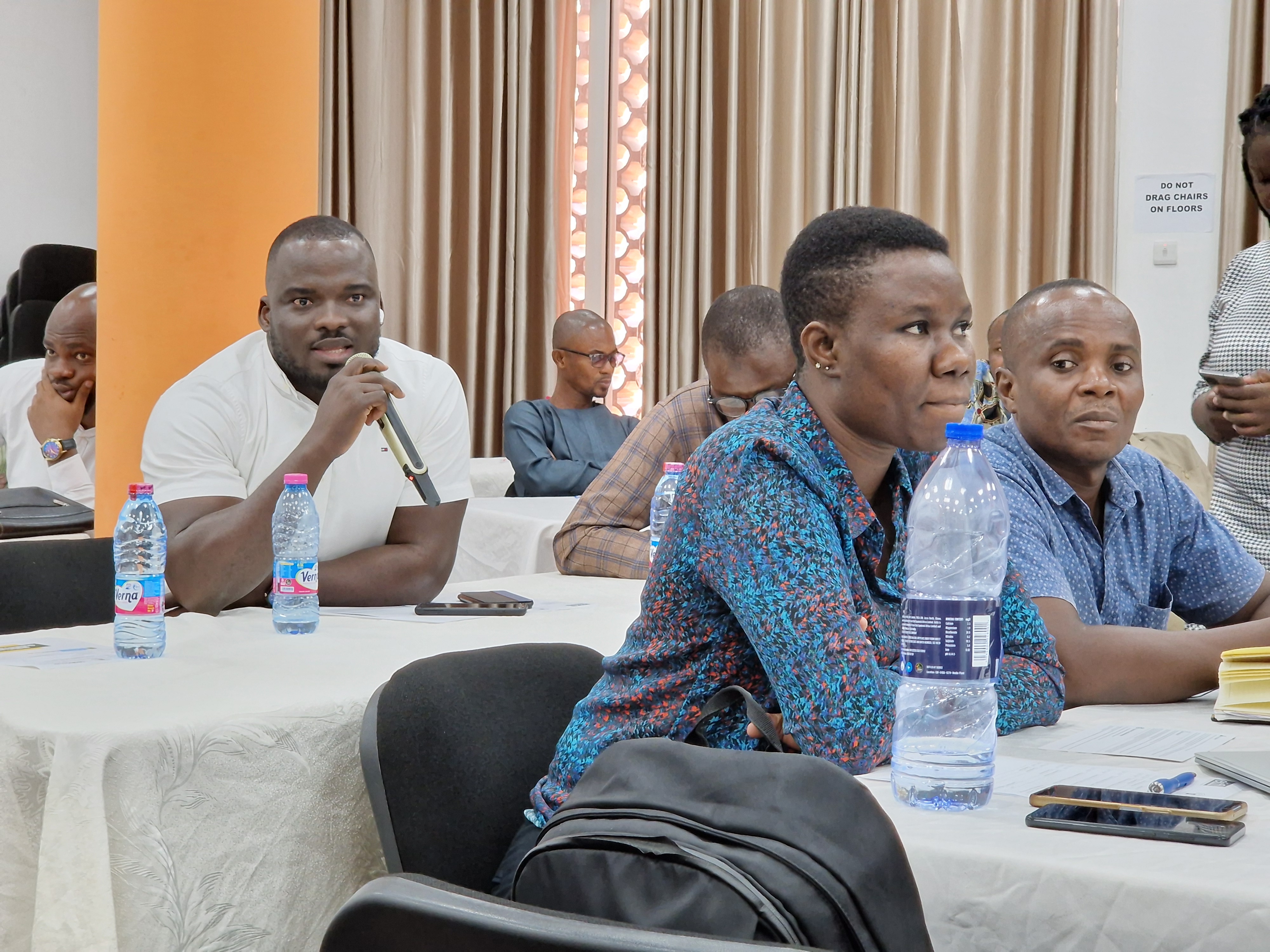
Ugne Lipeikaite, EIFL-PLIP Impact Manager, shared findings of needs assessment research conducted for the Digital Learning @ Ghana Libraries project to identify the digital skills needs of young people. The research was conducted in 15 locations by regional librarians, IT coordinators, and staff of the headquarters of the GhLA, who conducted just under 200 interviews with ICT teachers and students; school headmasters; municipal and regional education officers, and librarians.
The research found that -
- Practical skills for using basic word processing software (MS Office) are limited.
- The majority of youth in Ghana access the internet via mobile phones. The phones they use are mostly not their own, but are borrowed from parents or belong to teachers who use their personal phones in ICT classes to demonstrate the internet to students.
- Young people in Ghana have very basic online skills (for example, emailing and browsing), but have limited internet research skills and understanding of the other benefits of the internet.
The research also found young people’s main areas of interest were to improve their practical ICT skills, to learn about computer programming and coding, graphic design and effective online searching.
The stakeholders forum was followed by the start of a five-day training-of-trainers programme (11-15 March) for regional and district librarians from 15 public libraries that are participating in the project. The training, conducted by EIFL-PLIP and trainers from Kenyan and South African public libraries, covers training and facilitation skills, introduction to open educational resources and planning outreach to schools.
SHARE / PRINT






